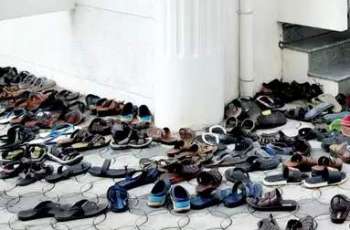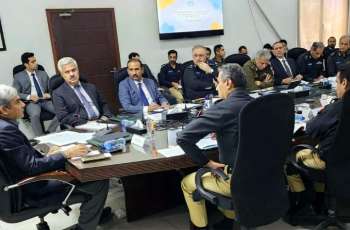Learning through the local press about the conversion of Clifton Aquarium, Karachi into an art gallery, WWF-Pakistan expresses serious concerns over the decision
Karachi (Pakistan Point News - 13th Nov, 2019) Learning through the local press about the conversion of Clifton Aquarium, Karachi into an art gallery, WWF-Pakistan expresses serious concerns over the decision. Though, the aquarium was closed in 1998 due to its dilapidated condition and major repair work was done in 2007 to make in functional. However, all efforts went in vain as it could not be made operational.
Established in 1965, Clifton Aquarium used to have displays for both marine and freshwater fishes and other animals. The facility housed a large number of marine animals including some rare marine fishes and invertebrates. Sea horses, a rare species, were not only housed in this aquarium but also bred there. This was the only aquarium in Pakistan where seawater recirculating facility was available. At present, no national institution including the National Institute of Oceanography, Bahria Museum, Centre of Excellence in Marine Biology and the Institute of Marine Sciences have fully functional seawater aquaria. Additionally, the Clifton Aquarium was one of the main attractions of Karachi city until 1998. It may be noted that since its establishment in 1965 to 1998, most foreign and the local visitors visiting Clifton Beach would spend a few hours at Clifton Aquarium.
Considering the aesthetic importance and as a centre for the study of marine animals, WWF-Pakistan urges a revival and upgrade of Clifton Aquarium so that it can attract tourists, researchers and students. Keeping in step with the current government push to promote tourism in the country, the revival of Clifton Aquarium can be an important step in this direction.
Throughout the world, the number of aquaria, especially those related to marine, have increased. There are large marine aquaria in Singapore, Hong Kong, Dubai and almost all major coastal cities of the world, which serve as tourist attractions, create awareness among the public, and are centres for the study of marine life. Dubai Mall Aquarium, for example, houses thousands of aquatic animals, comprising over 140 species. Over 300 sharks and rays are found here, including the largest collection of sand tiger sharks in the world. More than 1,000 employees manage this aquarium.
Muhammad Moazzam Khan, Technical Advisor (Marine Fisheries), WWF-Pakistan pointed out that an art gallery can be established at any location in the city, but a marine aquarium can only be run along the coastline. He also stressed the need for the immediate revival of Clifton Aquarium. ‘It will be a major contribution towards creating awareness about nature especially the marine environment,’ he added.
It may be noted that Karachi’s Natural History Museum was among the leading natural museums of British India. However, after the creation of Pakistan, it was closed down, whereas the Natural History Museum of the Zoological Survey of Pakistan, located at Karachi Fish Harbour, was shifted to Islamabad in 2009. Currently, there is no nature study centre in the city and closing Clifton Aquarium will further deprive the city of an important nature study centre. WWF-Pakistan, therefore, stresses the need to revive Clifton Aquarium, rather than converted it into an art gallery.




